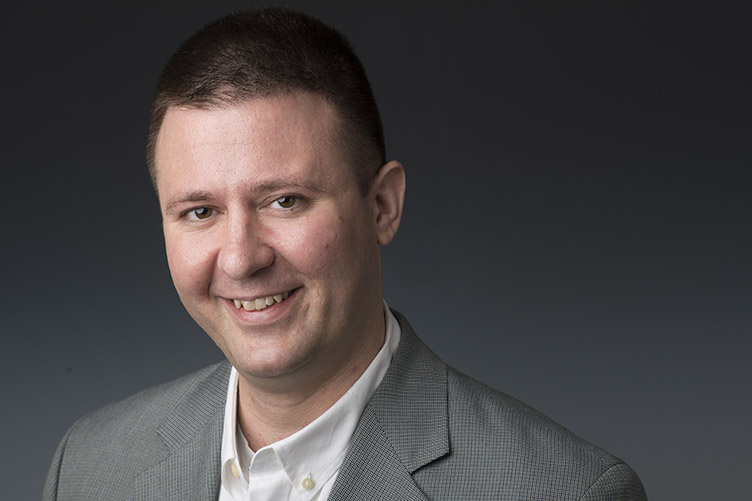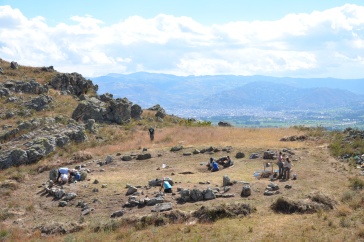
Michael Leese, assistant professor of history
This semester, Michael Leese, assistant professor of history, will focus entirely on his second book project, thanks to a Harvard University Loeb Classical Library Foundation Fellowship.
The Loeb Classical Library Foundation awards fellowships to qualified scholars to support research, publication and other projects in classical studies. According to the foundation’s website, founder James Loeb directed income from the Loeb Classical Library to be used "for the encouragement of special research at home and abroad in the province of Archaeology and of Greek and Latin Literature."
Leese was recently awarded the full fellowship amount — $35,000 — which, he says, was a huge boost of confidence for his research on how effectively individuals in the classical Greek era were able to accumulate and pass on wealth. His first book project, “Making Money in Ancient Greece” (now in review with a publisher), challenged the myth that the rise of modern and industrial capitalism occurred because people “suddenly began behaving rationally.”
“It was not because ancient Greeks were irrational or that their economy was primitive.” Leese says. “What I saw in non-agricultural activities, for example in commerce or finance, was that Greeks were almost entirely unable to maintain a fortune or accumulate capital in those types of activities for longer than one generation. There were institutional factors that prevented business in commerce and finance like we have in the modern world from growing across multiple generations.”
In his second book, which further explores the effects of ancient Greek institutions on economic growth and development, Leese says he will review, translate and analyze inheritance lawsuit speeches and estate inventories that describe how family members dealt with wealth distribution after a death. These details provide good clues about what estates were comprised of and what happened to them after the death of an original owner, he says.
“My goal is to make this accessible to people who aren’t just experts in my field,” he says.
Leese began teaching at UNH in 2014, where he served as the first postdoctoral associate with the Responsible Governance and Sustainable Citizenship project in the department of classics, humanities and Italian studies. The following year, Leese became an assistant professor in the history department, where he has teaches undergraduate courses in pre-modern world history, economic history, Greco-Roman history and historical methodology.
-
Written By:
Krysten Godfrey Maddocks '96 | College of Liberal Arts | krysten.godfreymaddocks@unh.edu
















































